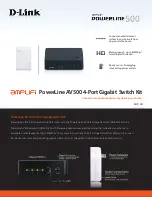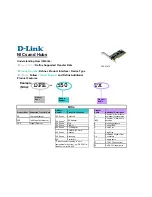
login: admin
Dell#
Lock CONFIGURATION Mode
Dell Networking OS allows multiple users to make configurations at the same time. You can lock CONFIGURATION mode so that only one
user can be in CONFIGURATION mode at any time (Message 2).
You can set two types of lockst: auto and manual.
•
Set auto-lock using the
configuration mode exclusive auto
command from CONFIGURATION mode. When you set auto-
lock, every time a user is in CONFIGURATION mode, all other users are denied access. This means that you can exit to EXEC Privilege
mode, and re-enter CONFIGURATION mode without having to set the lock again.
•
Set manual lock using the
configure terminal lock
command from CONFIGURATION mode. When you configure a manual
lock, which is the default, you must enter this command each time you want to enter CONFIGURATION mode and deny access to
others.
Viewing the Configuration Lock Status
If you attempt to enter CONFIGURATION mode when another user has locked it, you may view which user has control of
CONFIGURATION mode using the
show configuration lock
command from EXEC Privilege mode.
You can then send any user a message using the
send
command from EXEC Privilege mode. Alternatively, you can clear any line using the
clear
command from EXEC Privilege mode. If you clear a console session, the user is returned to EXEC mode.
Example of Locking CONFIGURATION Mode for Single-User Access
Dell(conf)#configuration mode exclusive auto
BATMAN(conf)#exit
3d23h35m: %RPM0-P:CP %SYS-5-CONFIG_I: Configured from console by console
Dell#config
! Locks configuration mode exclusively.
Dell(conf)#
If another user attempts to enter CONFIGURATION mode while a lock is in place, the following appears on their terminal (message 1):
%
Error: User "" on line console0 is in exclusive configuration mode
.
If
any
user is already in CONFIGURATION mode when while a lock is in place, the following appears on their terminal (message 2):
%
Error: Can't lock configuration mode exclusively since the following users are currently
configuring the system: User "admin" on line vty1 ( 10.1.1.1 )
.
NOTE:
The CONFIGURATION mode lock corresponds to a VTY session, not a user. Therefore, if you configure a lock and then
exit CONFIGURATION mode, and another user enters CONFIGURATION mode, when you attempt to re-enter CONFIGURATION
mode, you are denied access even though you are the one that configured the lock.
NOTE:
If your session times out and you return to EXEC mode, the CONFIGURATION mode lock is
unconfigured.
LPC Bus Quality Degradation
LPC Bus Quality Analyzer (LBQA) will run on Intel C2000 (Rangeley family) based platforms that make use of the LPC bus. The canary
code that runs along with the pollers will constantly monitor the LPC bus and once it detects signal degradation, it ,alerts or warns the user
via following methods:
1
A high priority syslog is issued. The text of this syslog in TOR platforms would be “CPU Clock signal has degraded below acceptable
threshold on stack-unit
<stack-unit-number>
with service tag
<service tag>
. Please contact Technical Support". In chassis platforms
the text would be “CPU Clock signal has degraded below acceptable threshold on Line card
<line card number>
with service tag
<service tag>
. Please contact Technical Support". This syslog continues to be emitted every 30 minutes. An SNMP trap with this
information will also be generated once every hour.
82
Management
Summary of Contents for S3048-ON
Page 1: ...Dell Configuration Guide for the S3048 ON System 9 11 2 5 ...
Page 137: ...0 Gi 1 1 Gi 1 2 rx Flow N A N A 0 0 No N A N A yes Access Control Lists ACLs 137 ...
Page 142: ...Figure 10 BFD Three Way Handshake State Changes 142 Bidirectional Forwarding Detection BFD ...
Page 241: ...Dell Control Plane Policing CoPP 241 ...
Page 287: ... RPM Synchronization GARP VLAN Registration Protocol GVRP 287 ...
Page 428: ...Figure 53 Inspecting the LAG Configuration 428 Link Aggregation Control Protocol LACP ...
Page 477: ...Figure 73 Configuring Interfaces for MSDP Multicast Source Discovery Protocol MSDP 477 ...
Page 478: ...Figure 74 Configuring OSPF and BGP for MSDP 478 Multicast Source Discovery Protocol MSDP ...
Page 483: ...Figure 77 MSDP Default Peer Scenario 2 Multicast Source Discovery Protocol MSDP 483 ...
Page 484: ...Figure 78 MSDP Default Peer Scenario 3 484 Multicast Source Discovery Protocol MSDP ...
Page 745: ...Figure 104 Single and Double Tag TPID Match Service Provider Bridging 745 ...
Page 746: ...Figure 105 Single and Double Tag First byte TPID Match 746 Service Provider Bridging ...
















































